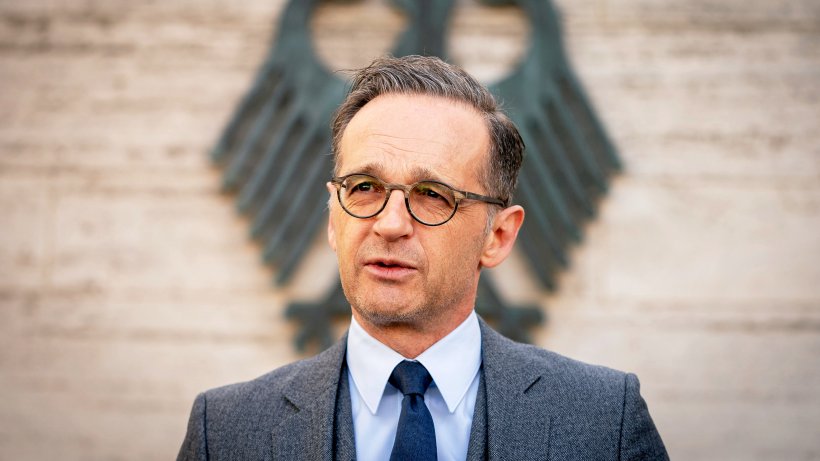Australia/Israel Review
Europa Europa: The Real Arab Spring
Oct 8, 2020 | Douglas Davis

Europe applauded the historic normalisation deals between Israel and two Gulf states last month. But many European nations, still clutching their ancient, dog-eared Arabist script, were clapping with only one hand.
The occasion was as important for the signatories – Israel, the United Arab Emirates and Bahrain – as it was for regional stability, said a European Commission spokeswoman, before quickly adding: “Of course, we are committed to a two-state solution and we are ready to work on a resumption of the negotiations between the Israelis and the Palestinians.”
That was the line of most of the European states who acknowledged the occasion. Among the least cool was German Foreign Minister Heiko Maas, who hailed the treaty as “historic”, adding: “I have just spoken to Israeli Foreign Minister Gabi Ashkenazi on the telephone and offered him my congratulations on this historic step. The normalisation of relations is an important contribution to achieving peace in the region.”
“It is good that the Israeli Government has agreed to suspend its annexation plans,” he added. “We hope that this agreement will be the starting point for further positive developments in the region and that it can also inject fresh impetus into the Middle East peace process. We continue to maintain that only a negotiated two-state solution can bring lasting peace to the Middle East.”
Some other European states produced similar expressions of limited, heavily qualified satisfaction for the normalisation deals. But when the rubber hit the road, Hungary’s Foreign Minister, Peter Szijjarto, was the only ministerial-level European who made the transatlantic journey to the signing ceremony in Washington.
“Since the White House prepared the agenda for stabilising the region, this has … proved to be the best peace plan thus far and promises to bring peace in the Middle East at last,” Szijjarto noted on his Facebook page: “The US President thus deserves gratitude,” he noted, adding praise for Israeli, UAE and Bahraini leaders.
Hungarian Prime Minister Viktor Orban, whose hard-line rhetoric, particularly on immigration, has often sparked criticism in the EU, was an early and avid supporter of US President Donald Trump.
The agreement struck between Israel, the United Arab Emirates and Bahrain was the first such pact with an Arab country in a quarter of a century (Egypt, 1979; Jordan 1994). It was no less historic for that.
While Egypt and Jordan were both front-line states that had been to war against Israel, the peace treaties removed them from the future battlefield. Moreover, the absence of Egypt, the most powerful and populous Arab state, made it impossible for any other Arab state, or coalition of Arab states, to consider military action against Israel without them.
Of course, the Gulf states had never posed a military threat to Israel. Instead, the normalisation agreements not only signalled the end of any lingering trade embargoes against Israel but offered the prospects of partnerships that would enable the oil-rich Gulf states to marry their financial capital with Israel’s world-class technology – including weaponry. The agreements promise economic and technological power for all involved.
Israel and the Gulf states have not looked like enemies for a long time: “Publicly the Gulf states have hosted Israeli ministers and athletes; covertly their business and intelligence dealings have been gaining strength with every year,” noted one regional analyst in London.
More Gulf sheikdoms, along with several notably influential Muslim states in Africa, are anxious not to lose out on the prosperity that normalisation can bring, and they are likely to follow the examples of the United Arab Emirates and Bahrain before long. Think Oman, think Morocco, among others.
Israeli Intelligence Minister Eli Cohen predicted that additional agreements, both with more Gulf countries and with Muslim countries in Africa, were likely to be on the way. “In my assessment, there is a chance that already in the coming year there will be a peace deal with additional countries in Africa, chief among them Sudan.”
The big prize would be Saudi Arabia, but that might be some time off. Crown Prince Mohammad bin Salman, de facto ruler of Saudi Arabia, has acknowledged that formal relations with Israel would be mutually beneficial. He appears envious of Israel’s economic and technological might, but formal ties are probably still a step too far for the Guardian of Mecca and Medina.
The elephant in the room remains the Palestinians. Europe might still plead their case but the caravan is moving on. The Arab states, particularly in the Gulf, are more concerned about the threat posed by Iran and exploiting their pragmatic search for prosperity in partnership with Israel.
The naysaying Palestinians, begging bowl in hand, still mired in corruption, victimhood and a sense of entitlement, will have to wait.
In the meantime, the Arab states of the Gulf are sensing that they are, finally, on the edge of a real Arab Spring.






